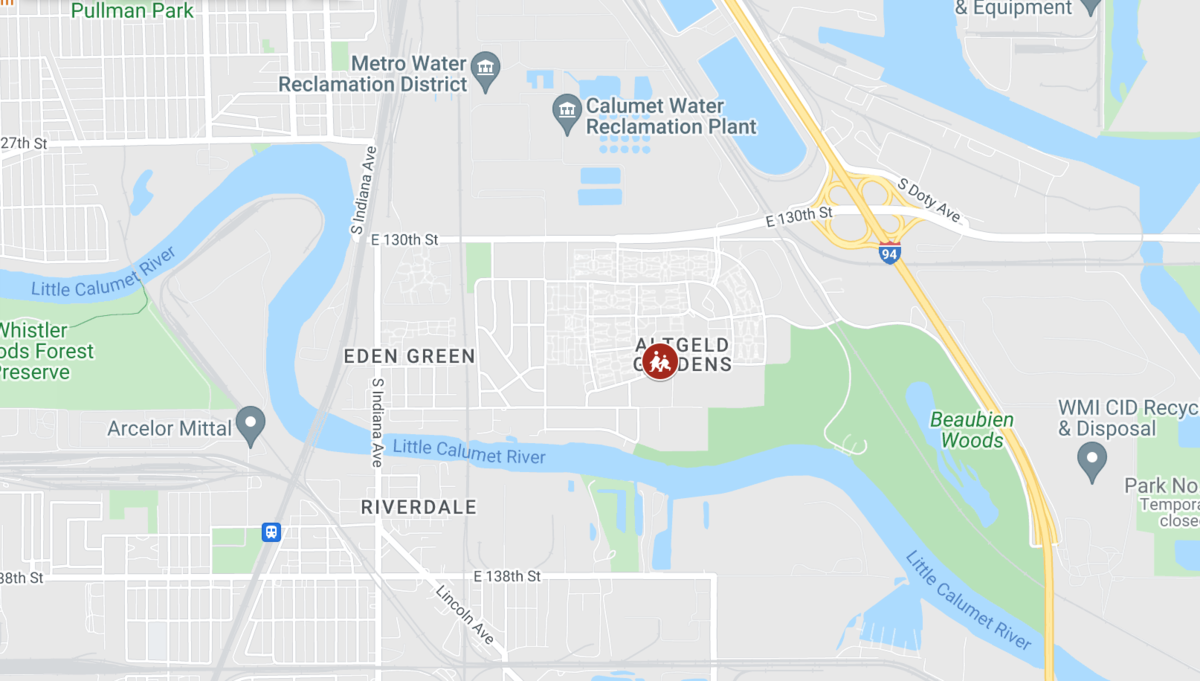By: Gwendolyn Graham
The Phyllis Wheatley Child-Parent Center (CPC) opened in 1969 and is one of the original and renowned preschool-to-3rd grade centers in the Chicago Public School District. The goal of the centers is to promote the educational success and well-being of families growing up in poverty. Wheatley, and the adjacent George Washington Carver Elementary School, are part of both the Chicago Longitudinal Study (CLS) and the Midwest CPC Expansion Project.
Wheatley is located on the far South of Chicago, Illinois, in the Altgeld Gardens neighborhood. A majority of residents are below the poverty line, and nearly everyone lives in minority public housing. Altgeld Gardens is infamously known as a “toxic donut” because of the isolation and desolation from surrounding manufacturing plants, steel mills, landfills, and waste dumps (Chicago Tribune Editorial Board, 2020). The community’s ills are a result of severe disadvantages coming from segregation and discrimination, which prevents many youth from engaging fully in society until they are old enough or given opportunities through school. As Head Teacher at Wheatley CPC for over a decade and a Parent Resource Teacher before that, I designed lesson plans to promote parent involvement as well as offer high-quality, standards-based education.
One easy-to-implement lesson is the interactive Read Aloud activity, which is a part of the Book Buddy Take-Home program. Parents select a book to read and go through it with post-it notes, identifying key points to ask the students questions for comprehension and monitoring their academic progress. But the parents take the activity from a simple read-aloud to a memorable experience of role-playing as well as set and costume design. It wouldn’t be possible without parent involvement, and it’s more impactful because it strengthens students’ relationships with school, reading, and family (Reynolds & Shlafer Ch. 7, 2010). Secret talents revealed themselves when parents would teach each other how to sew costumes and build sets for their students stepping into the spotlight to act out the story.
The books are chosen with purpose. Students listen to and act out stories that reflect their identities while learning about the importance of anti-bias and cultural diversity in an appropriate and engaging way. Students develop a positive self-image and improve their self-esteem. This is a high-quality lesson plan that goes beyond meeting academic standards. Students grow emotionally and see themselves in the lesson (Mondi et al., 2021). Parents bring lessons like this to the Annual Parent Fair for Chicago’s ECE district. Here, parents collaborate and learn from each other and take it to their own schools and families to try out.
During the election of President Barack Obama, it was an exciting time in history, and to help our students and parents understand the importance of this time, I created lessons and activities about voting. The school staged a voting simulation in the school (from pre-K to 8th-grade) to empower our students to gain an understanding of the voting process. I organized a team effort of the students, parents, and the school staff to collaborate. As the presidential election approached, I knew this was a critical learning opportunity for students. I wanted my students to understand how our government works and see their role in the process. We read books about the importance of voting and representation along with building mock voting stations (booths and all) with parents. We held the voting on the same day that the adults cast their ballots. The next day, students came to school buzzing about the results they heard from their parents and on TV. Their person had won. Excitement filled the classrooms all over the school. Parents made “I Voted” stickers for students to wear home with pride to conclude the voting process. This was a great day in history, and the students felt that they had a part in it all.
These and other memorable lessons stay with me. It was a tough job. We worked to make sure our students got everything they needed, but I will never forget these days. I am proud to have been a part of positive change in so many lives. CPC schools make a lifelong impact on the lives of the students, families, and staff.
Gwendolyn Graham is a retired Head Teacher from the Phyllis Wheatley Child-Parent Center in Chicago Public Schools. Since 2014, Gwendolyn has resided in St. Paul, MN, where she is a teacher mentor and CPC facilitator in the Human Capital Research Collaborative. She knows that quality early childhood education levels the playing field for all children, especially those disadvantaged.
